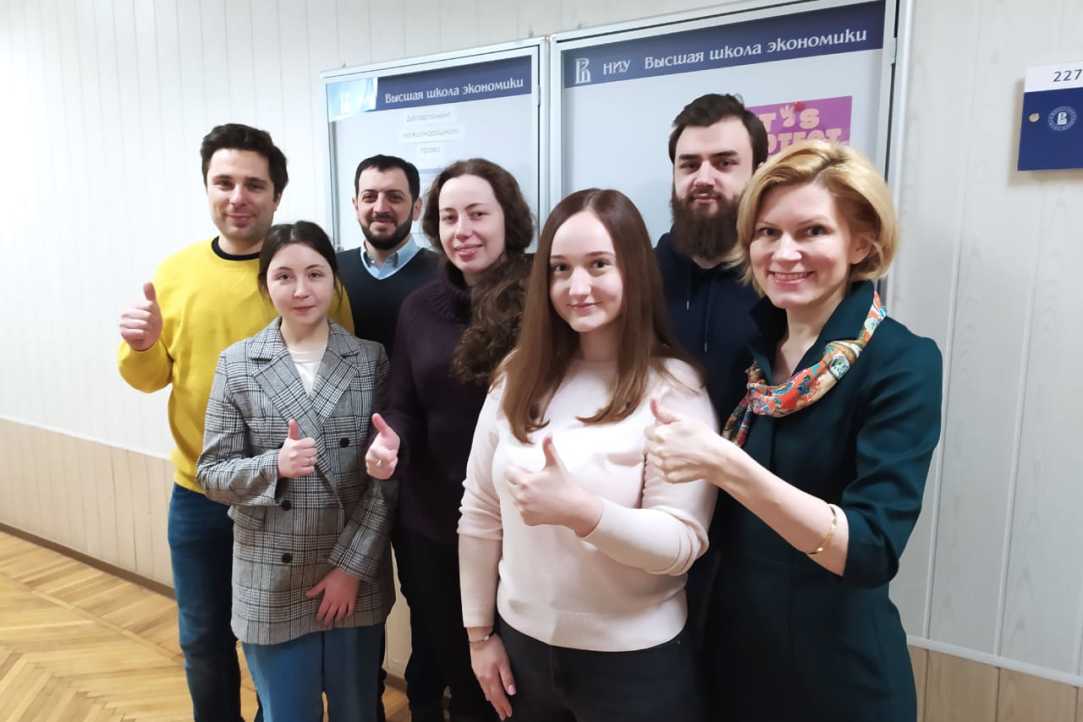
Mission accomplished, but the work is not over yet...
On March 13, 2021, the scientific and educational group ‘International Law in the Cyber Age’ held its last meeting, which summed up the results of research carried out throughout 2020.
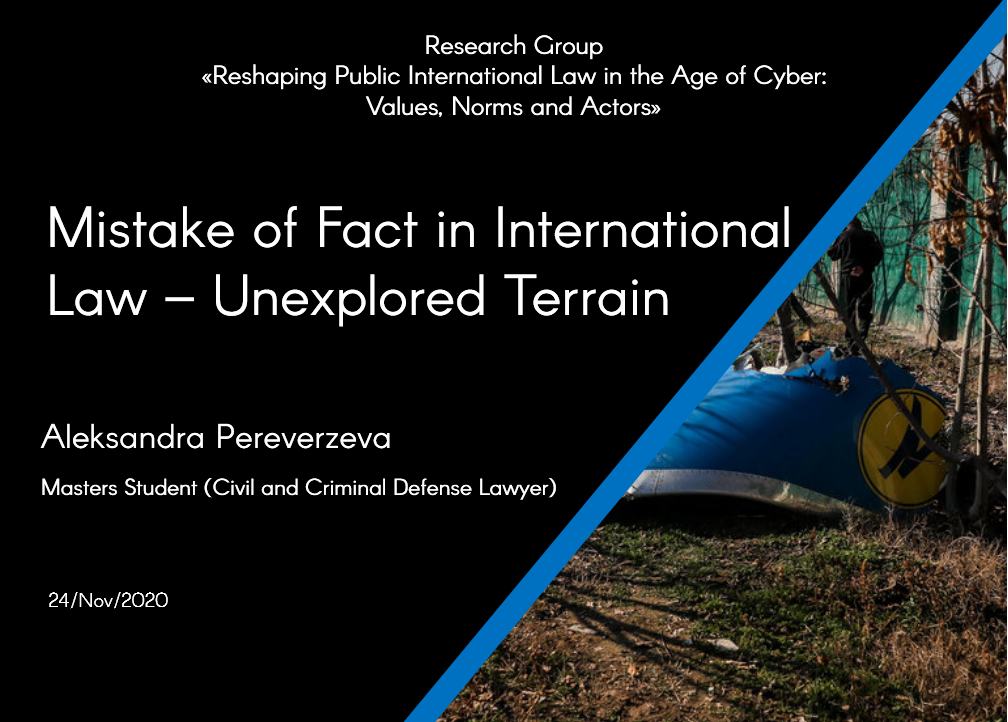
Seminar on the topic of "Mistake of Fact in International Law – Unexplored Terrain"
For International Lawyers, the initial position of the Iranian government regarding shooting down Ukraine International Airlines flight 752 in early January 2020 had to be inquired, as to the validity of claiming one of the well-established defences in criminal law, namely “mistake of fact”, applicable in this scenario. The tragedy created by this unfortunate incident left many initial questions unanswered, particularly concerning the official Iranian vague denial before admitting the shooting due to wrong radar reading. Our colleague Alexandra Pereverzeva dedicated this seminar to discuss this issue.
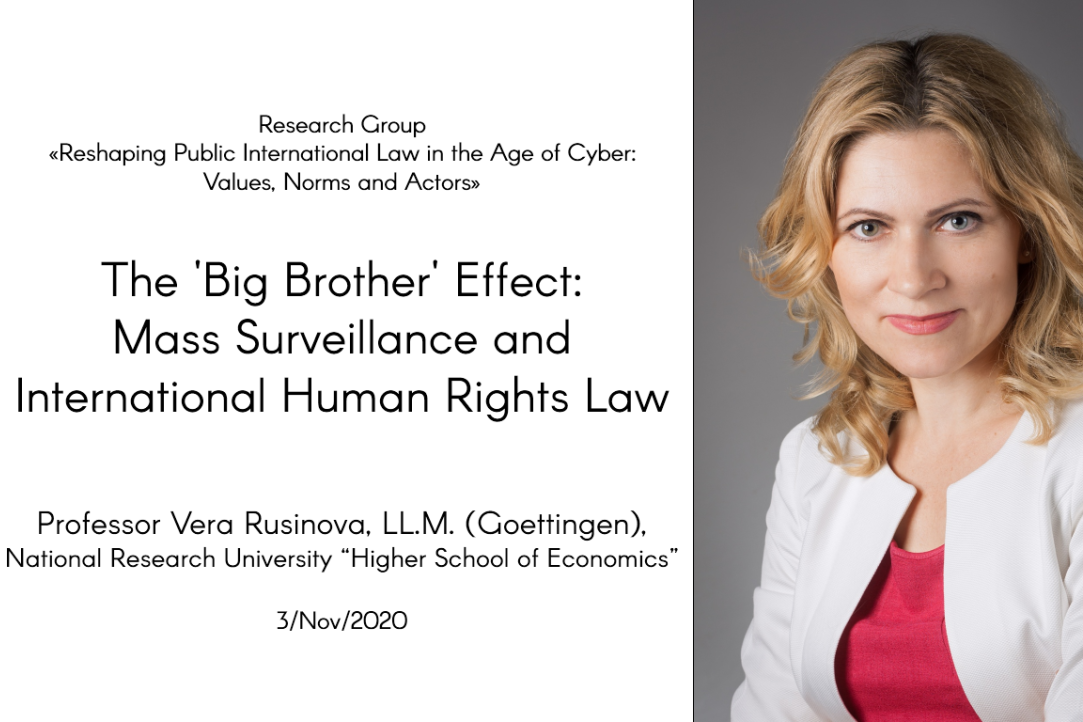
Seminar on the topic of "The 'Big Brother' Effect: Mass Surveillance and International Human Rights Law"
Professor Vera Rusinova tackled from the point view of law on of the most pressing issues of our contemporary civil societies, namely the controversial question of mass surveillance. The lecturer applied a unique interdisciplinary approach relying on related judicial decisions and sociological literature to describe the current state of human rights law against the rapidly spreading practice of mass surveillance.
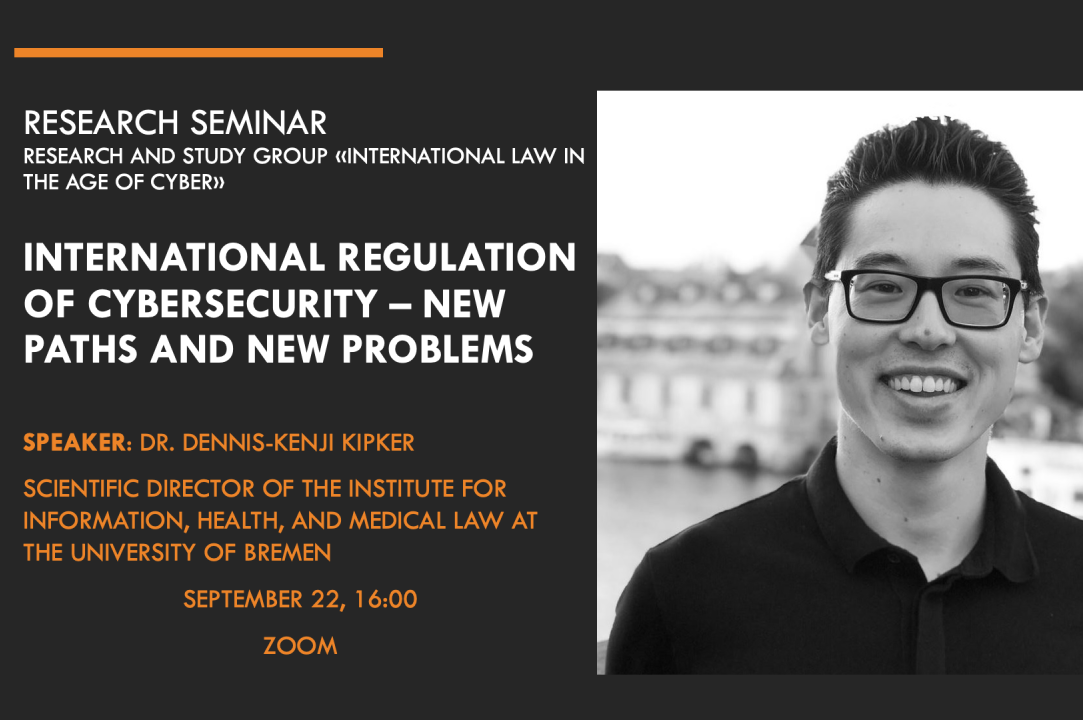
Seminar on the topic of "International Regulation of Cybersecurity – New Paths and New Problems"
Due to the increasing number of cyberattacks globally, legislators in various countries have committed themselves to increase legal regulation of cybersecurity. But what exactly are the laws, and where are the limits of legal regulation? Professor Dennis-Kenji Kipker shared his opinions on this matter.
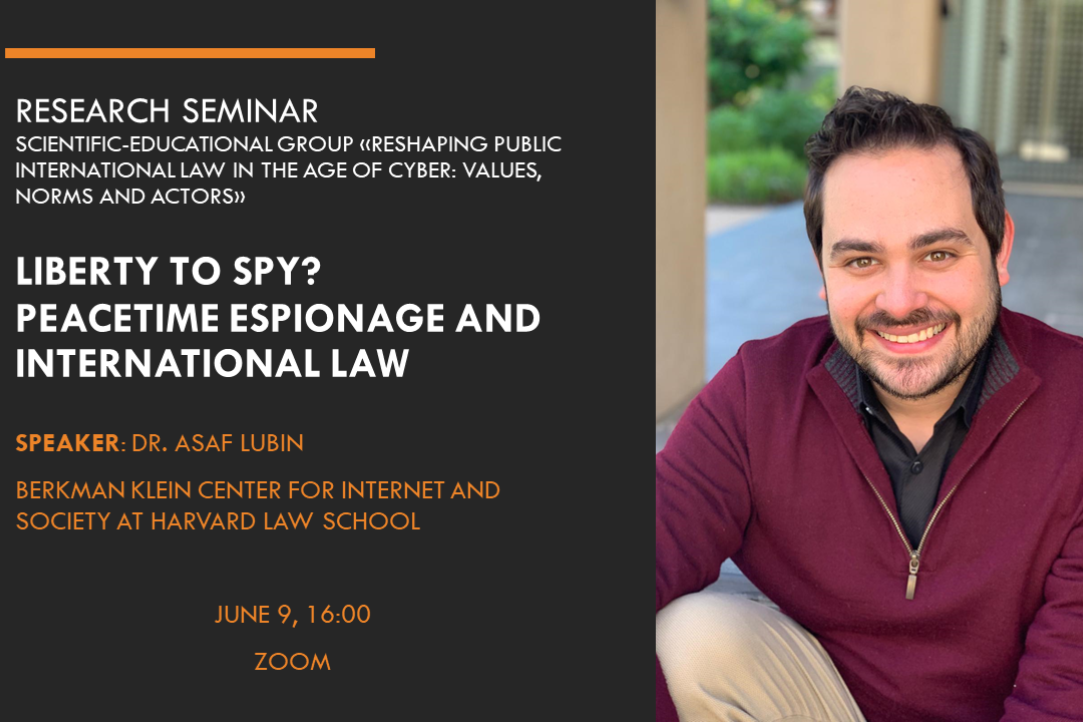
Seminar on the topic of "Liberty to Spy? Peacetime Espionage and International Law"
In his lecture titled “Liberty to Spy? Peacetime Espionage and International Law”, Dr. Asaf Lubin (J.S.D.) presented thoughtful arguments challenging the commonly held scholarly opinion on the unfeasible existence of an International Law of Intelligence. In his argumentation, Dr. Lubin relied on a variety of state practice in peacetime while incorporating intelligence ethics and moral philosophy.
.png)
Seminar on the topic of "The UN Charter and ‘cyber warfare’:substantial law and evidentiary issues"
The speaker Marco Roscini, Professor of International Law at the University of Westminster in London and the author of Cyber Operations and the Use of Force in International Law (Oxford University Press, 2014) dedicated his presentation to two issues: substantial International law applicable to cyber operations and relevant evidentiary standards.
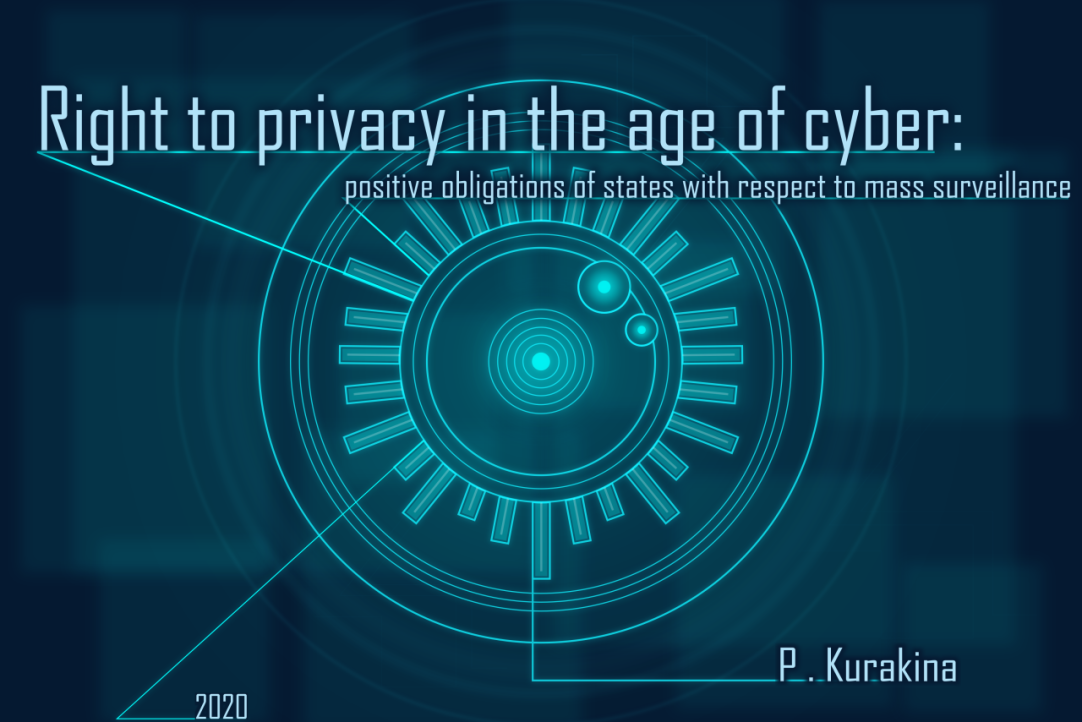
Seminar on the topic of “Right to privacy in the age of cyber: positive obligations of states with respect to mass surveillance”
In her report presenter gave an overview of positive obligations of states with respect to mass surveillance.
Scientific seminar on the topic "Territorial Sovereignty in the Age of Cyber"
In their report, the presenters (Alaa N. Assaf and Daniil Moshnikov) gave an overview of the theories and the practice regarding territorial sovereignty in cyberspace under international law.
Seminar on the topic of ‘The Relationship Between State and Individual Responsibility for International Crimes: Revisiting the Classic Problem of International Law’
In his report, G.I. Bogush has examined the relationship between the international legal responsibility of states and individual criminal liability for serious violations of international law, in the light of contemporary problems facing the international legal system.
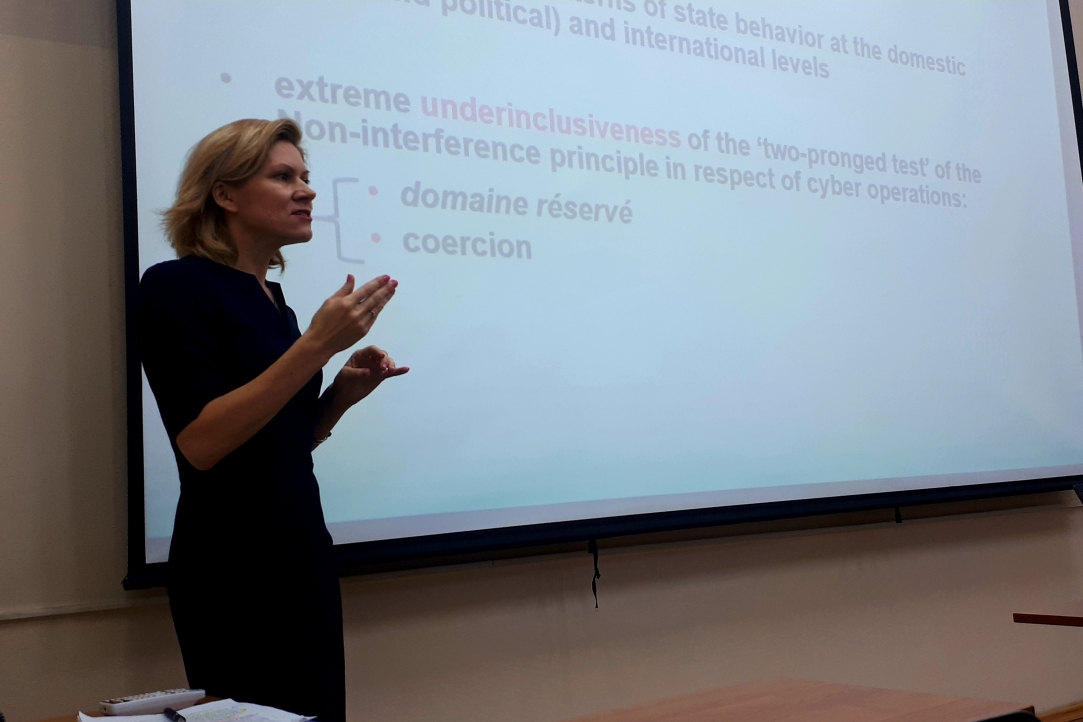
Seminar on the topic of ‘ The International Legal Principle of Non-Interference and Deterence of Cyber-Operations’
A semninar on the topic «The International Legal Principle of Non-Interference and Deterence of Cyber-Operations» was held. In her talk the speaker - Vera Rusinova - tackled the question of whether and to what extent the principle of non-interference in matters within the domestic jurisdiction, being one of the basic principles of International Law, is applicable and able to effectively deter these ‘low-intensity cyber-operations’.
